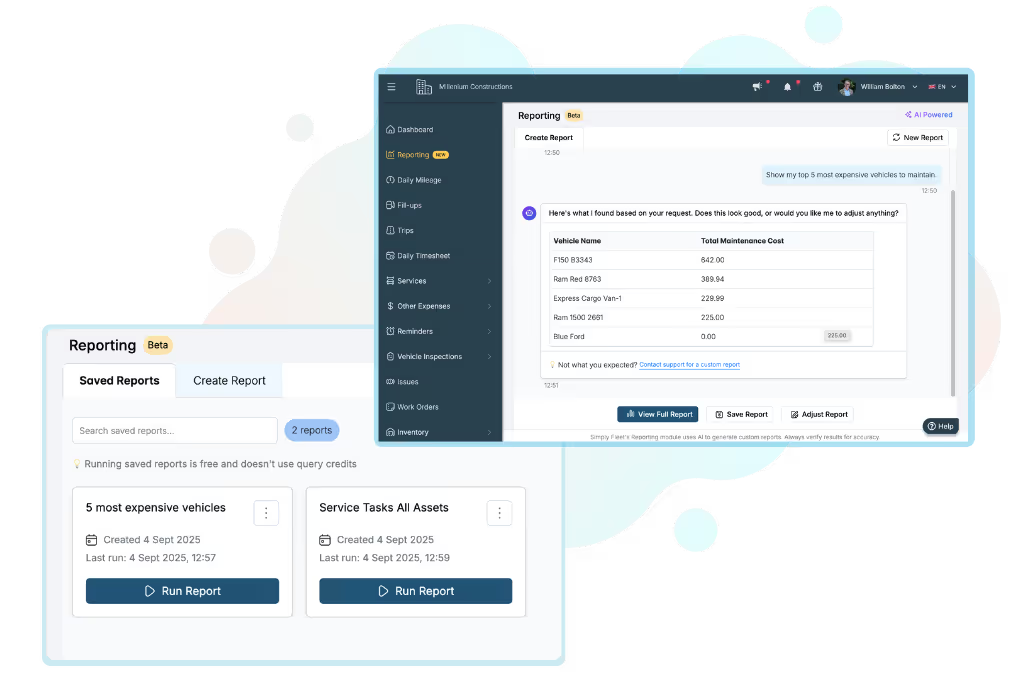✨🚗 Thanksgiving Special : Enjoy 15% Off on Simply Fleet Plans for a Year! 🚗✨Know More

✨Subscribe before 30th April 2023 and get onboarding & training worth $99 FREE.✨ Sign Up Now







Day-to-day reporting
Simple reports on fuel, reminders, and service history.
Cost control
Clear view of monthly spend and repair patterns.
Growth ready
Scale reporting without scaling spreadsheets.
Downtime reports
See which vehicles spend the most time in the shop and how that impacts deliveries.
Fuel and cost trends
Compare cost-per-mile and fuel spend across vehicles to control expenses.
Compliance reports
Audit-ready DVIRs and repair logs to avoid penalties.
Engine-hour tracking
Reports based on operating hours, not just miles, for heavy equipment.
Project cost allocation
Assign maintenance costs to jobs for accurate bidding and profitability.
Asset utilization
Identify equipment that sits idle versus overworked machines.
Inspection outcomes
Track pass/fail rates and unresolved defects across your fleet.
Regulatory compliance
Exportable reports aligned with DVIR and VMRS standards.
Service reliability
Show availability and repair turnaround times to stakeholders.

Streamline issue management for your fleet operations. Prioritize and resolve fleet-related issues efficiently with our comprehensive fleet management software.

Preventive maintenance is the best way for fleets to reduce and avoid accidents or vehicle breakdowns.

Vehicle & Asset Management is designed to help small business owners track their vehicle assets.
Most fleet reporting tools bury you in dashboards and filters. Simply Ask is different — you type a plain-language question and instantly get the fleet report you need. It’s reporting without the hassle.
You can instantly generate insights on total cost of ownership (TCO), repair history, cost-per-mile, downtime trends, inspection outcomes (DVIRs), unresolved defects, completed services, and preventive maintenance compliance.
Absolutely. You need audit-ready logs that show inspections, repairs, service histories, and any compliance checks. These are essential during DOT or internal reviews, and Simply Ask lets you pull them instantly.
Reports should track total cost of ownership, cost per mile, repair costs, fuel spend, inspection outcomes, preventive maintenance status, and repair turnaround — all of which support smarter budgeting and operations.